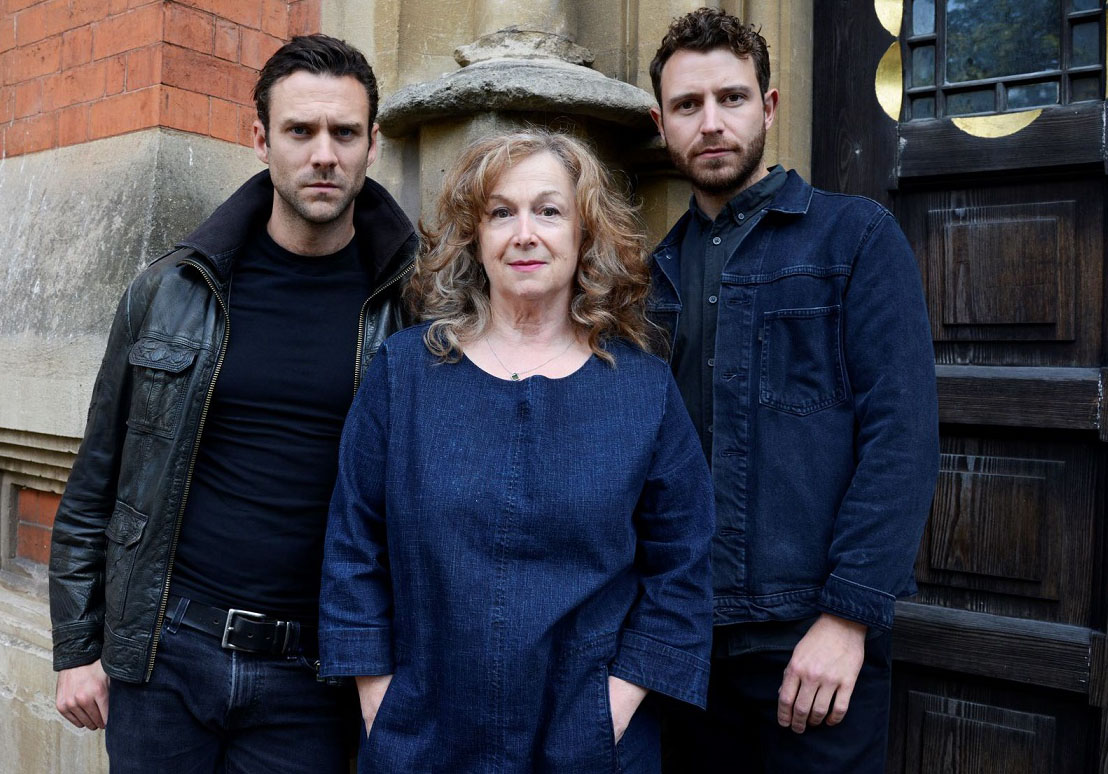
With Halloween approaching, we have our first seasonal tale of dread with Dracula, courtesy of Touring Consortium Theatre Company. I am loathe to the recommend this as a production of compelling horror, but for all its problems there is some enjoyment to be had from the shameless camp of it all.
Adaptor Jenny King has no small task in translating the book to stage. And I say this with little reverence for Stoker’s work. It is famous and influential, yes, but it’s not very good. Dracula the novel is a bloated mess of unnecessary passages, slow development, and redundant characters replete with inconsistencies and a morally cloying tone. On top of this, you have the fundamental contradiction of iconic horror stories: horror rests on the unfamiliar and mysterious, but everyone knows this Wallachian vampire inside out. How then to provide a thrilling experience on stage?
King’s attempt has obvious merits but plenty of flaws too. On the positive side, the cast is culled to bare essentials, the first half is reworked to have concurrent plots rather than tediously long sequential ones, and the drama of the second act is wisely truncated from the lumbersome plot of the novel. King’s best idea by far is altering Dracula’s thrall Renfield to Lady Renfield, played with relish by Cheryl Campbell. Here the zoophagous lunatic has an element of Lady Havisham about her, a deranged lady of means with idling interests in Darwin and the ascendancy of predatory organisms. Spirited performance aside, what works well conceptually is that Lady Renfield ominously foreshadows the arrival of the unseen Count and circumnavigates that problem of an overexposed monster. Alas, Lady Renfield highlights plenty of problems with the adaptation by contrast…
You could accuse Lady Renfield of having an abundance of personality but she is the only character to whom such a charge applies. For all the chopping and changing of the plot, King has still been far too deferential to the novel and as such so much of the dialogue is expositional. The characters do not feel fleshed out because they are explaining events all the time. I feel an agonising sympathy for Olivia Swann playing Mina Murray, whose role is essentially to query things in a perturbed voice. Yes, we’ve lost Van Helsing’s repeated trips to the continent to learn of vampires, the sections of sitting around worrying, and the agonising detail of the paper trail that the heroes accumulate, but there’s no integration of an emotional arc with what remains. And although I laud many of the excisions, the play is still uneven. The flashback at Dracula’s castle is too long, the amount of time given to Lucy’s corruption leaves little for clarifying the Count’s actual plan, and the ending is incredibly abrupt. All hallmarks of a play with some turbulent rewrites.
And though Lady Renfield is an effective omen, the restraint employed here is not used throughout. When the Count is on stage, we’re not in the realm of sinister implication but scenery-chewing camp. True, there is a good sequence where an unseen Dracula in dog form savages a local woman after crashing in Whitby, but too much of the action otherwise is explicit and not terrifying because of it. Of course, the audience needs a pay-off eventually but there’s no big reveal so much as a unsatisfying series of smaller ones.
Ultimately what struck me was the dissonance of sensibilities. The staging is very effective at evoking a sense of dread. But as ominous as the lighting, set and scene transitions may be, much of the action within those scenes is more Mel Brooks’ Dracula: Dead and Loving It than Hammer horror.
Were the play a touch shorter, I would sincerely recommend this as an unabashed pantomimical escapade. Certainly the actors lean in for the dramatic irony of asking ‘What could these puncture wounds on her neck be!?’ and the like. As it is, Dracula is perhaps a bit too long and lumpen to really measure up as a campy gem. It needed to decide if it was going to be a faithful or heavily reworked version of the story, and whether its tone was legitimate horror or lurid romp. As it is, it falls awkwardly between the two.
★★☆☆☆ Fenton Coulthurst 3rd October 2018
Please note that no production photos were available at the time this review was posted.

